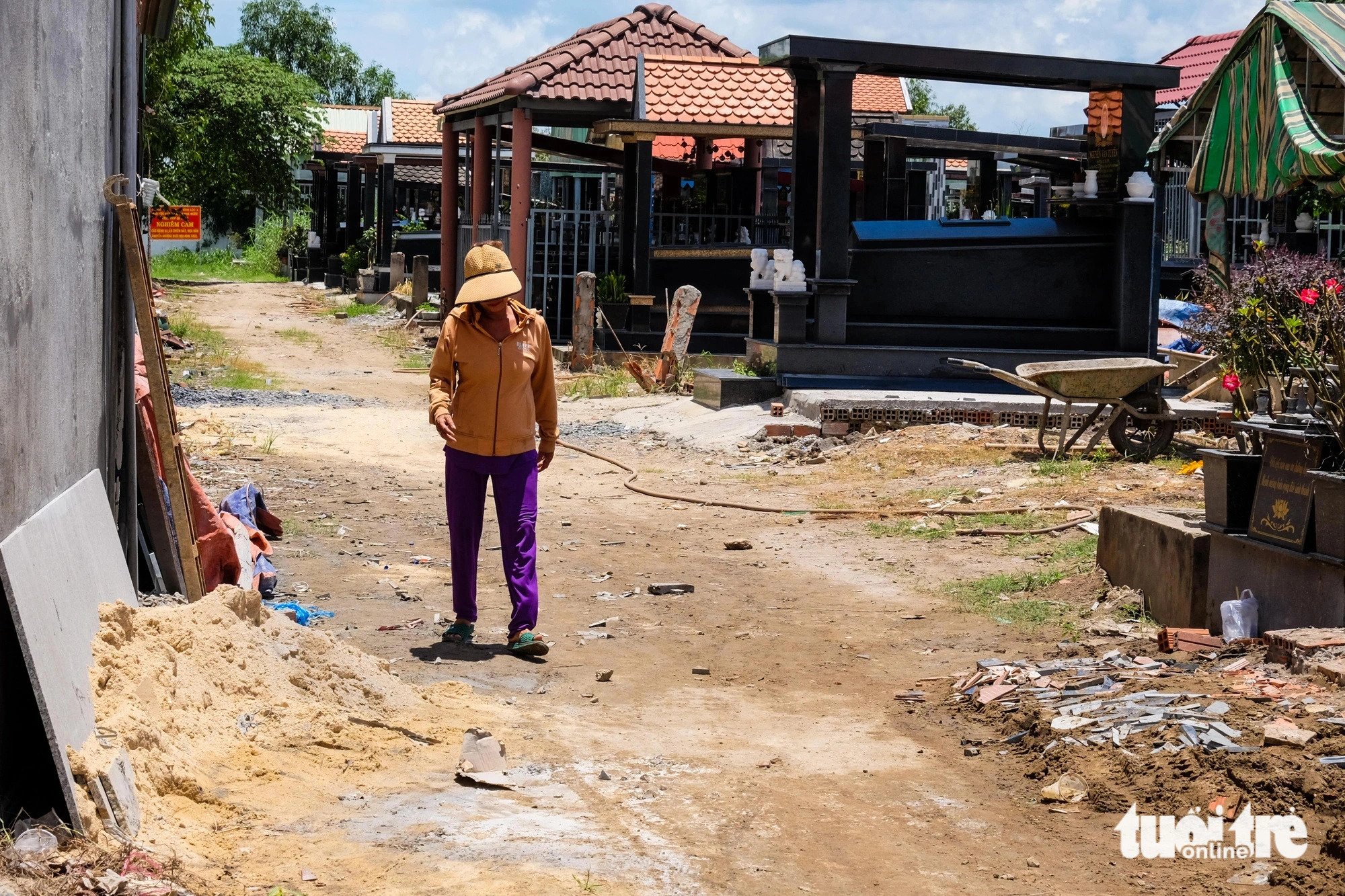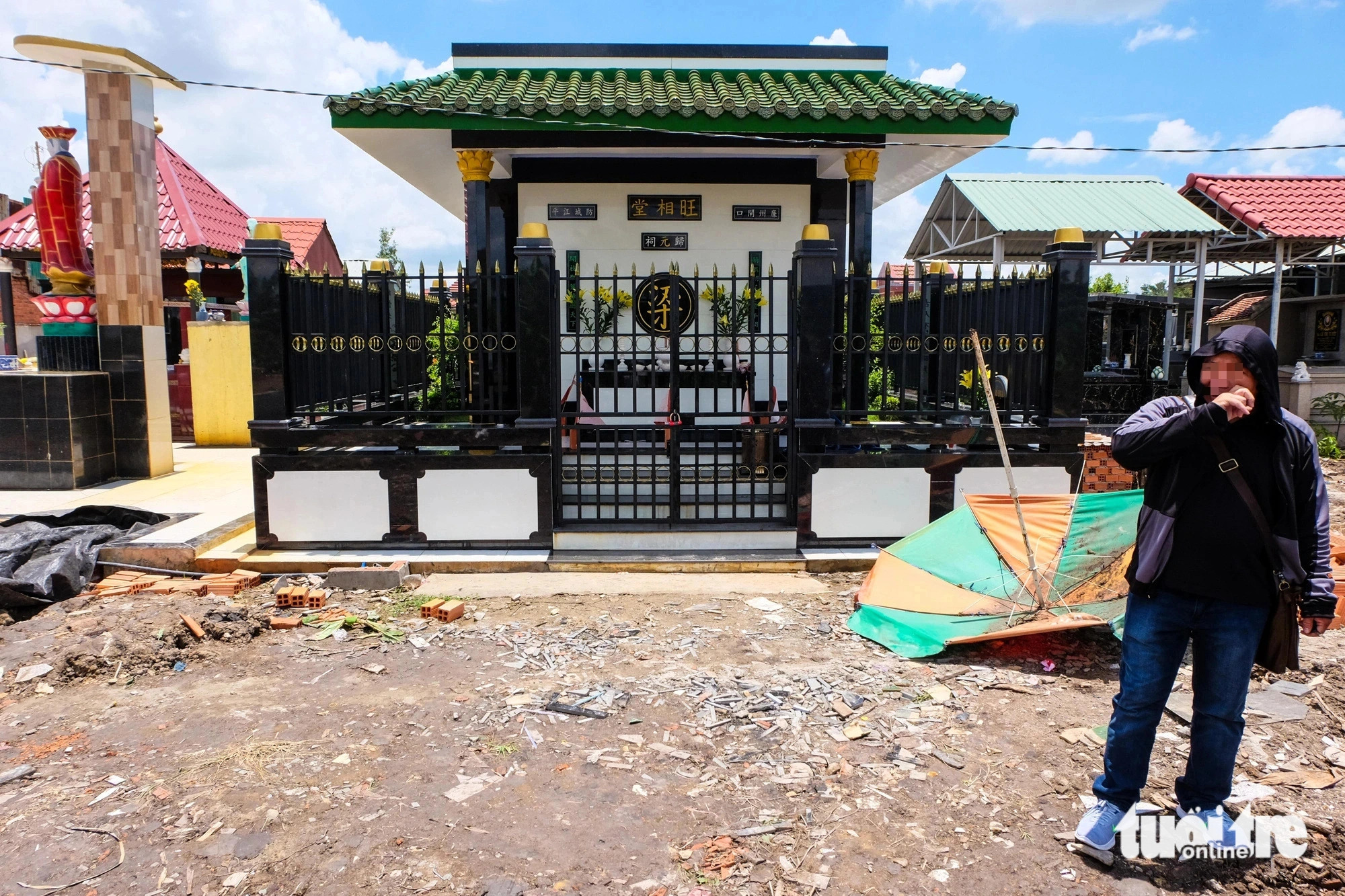Authorities have taken action against the illegal construction of over 100 graves and 20 grave houses on a piece of agricultural land in southwestern Ho Chi Minh City.
Phung Quoc Viet, chairman of Vinh Loc A Commune in Binh Chanh District, told Tuoi Tre (Youth) newspaper on Wednesday that a local man named Huynh Van Lanh was granted the right to manage and use this 3,000-square-meter plot of land.
Between 2016 and 2021, the land was unlawfully converted into a burial site.
The plot is located next to Chon Son Pagoda, which was built by Lanh, who has been practicing his religious beliefs at home for about 20 years.
The Vinh Loc A administration had previously put up a warning sign prohibiting the sale, transfer, allotment, and misuse of the land.
On Tuesday, local authorities announced their decision to impose an administrative fine on Lanh and ordered him to immediately dismantle two newly-built grave houses at the site.
If he fails to comply, further action will be taken.
Lanh was also informed that the sale and conversion of agricultural land into illicit burial sites, as well as unlawful land allotment and construction, are strictly prohibited.
After discussing the matter with authorities, Lanh pledged to use the land in accordance with the law, according to Viet.
|
|
| A grave house built on a plot of agricultural land in Vinh Loc A Commune, Binh Chanh District, Ho Chi Minh City. Photo: Phuong Nhi / Tuoi Tre |
The chairman also stated that the administration has directed relevant agencies to establish a checkpoint at the site of the illegally constructed graveyard to prevent further sales, allotment of agricultural land, and unauthorized burials.
Any vehicle transporting workers or construction materials to the site will be documented.
Viet explained that several factors, including a long pause due to the COVID-19 pandemic, the land plot’s remote location, and local burial customs and religious beliefs, contributed to the authorities' lax management over the illegal graveyard construction.
He pointed out that it is more challenging to take enforcement actions against illegally-built graves than against unauthorized houses.
A leader from the Binh Chanh District administration added that burying the deceased in gardens or on agricultural land is a common tradition in rural and outlying areas across many parts of Vietnam.
All communes in Binh Chanh have now been instructed to tighten control over agricultural land to prevent similar incidents.
Like us on Facebook or follow us on Twitter to get the latest news about Vietnam!



















































